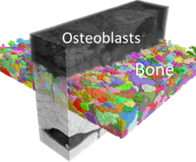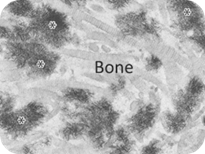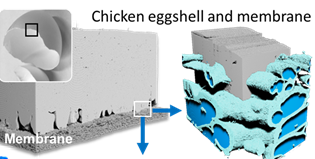Distinguished iNANO lecture by Professor Marc McKee, McGill University
Bones, tendons and eggshells at the nano- and microscale: Mineralization of biological fiber systems
Info about event
Time
Location
iNANO AUD (1593-012)
Organizer
Professor Marc McKee, Department of Anatomy and Cell Biology, McGill University
Bones, tendons and eggshells at the nano- and microscale: Mineralization of biological fiber systems
Biomineralization often occurs as mineral crystal growth within extracellular matrix fiber assemblies. While small-molecule and protein inhibitors broadly prevent soft and compliant tissues from mineralizing, release from this inhibition in the skeleton (bone and enthesis fibrocartilage) occurs through local expression of enzymes that cleave these inhibitors. Mutations in these enzymes result in inhibitor accumulation leading to debilitating mineralization defects and losses of mechanical function in osteomalacic diseases.


Correlative, multi-scale imaging approaches are now in common use in structural biology studies. However, this is not generally the case for hard mineralized tissues such as bone and cartilage, or eggshell – cases where fibrous matrices are permeated with a mineral phase that renders them difficult to analyze. Mechanical properties of mineralized fibrous biocomposites originate from nanoscale relations of their constituent parts, and often propagate across several hierarchical levels in 3D. Our work utilizes multi-scale imaging approaches (including electron microscopy, particularly FIB-SEM serial-surface-view tomography combined with deep learning-assisted segmentation) to better understand at multiple levels how mineralization develops in association with fibrous extracellular matrices to form biocomposites having diverse properties and functions. A particular emphasis is placed on lamellar bone and enthesis fibrocartilage (normal, and pathologic in rare bone and tooth mineralization diseases), and eggshells, as examples of mineralizing biosystems.

